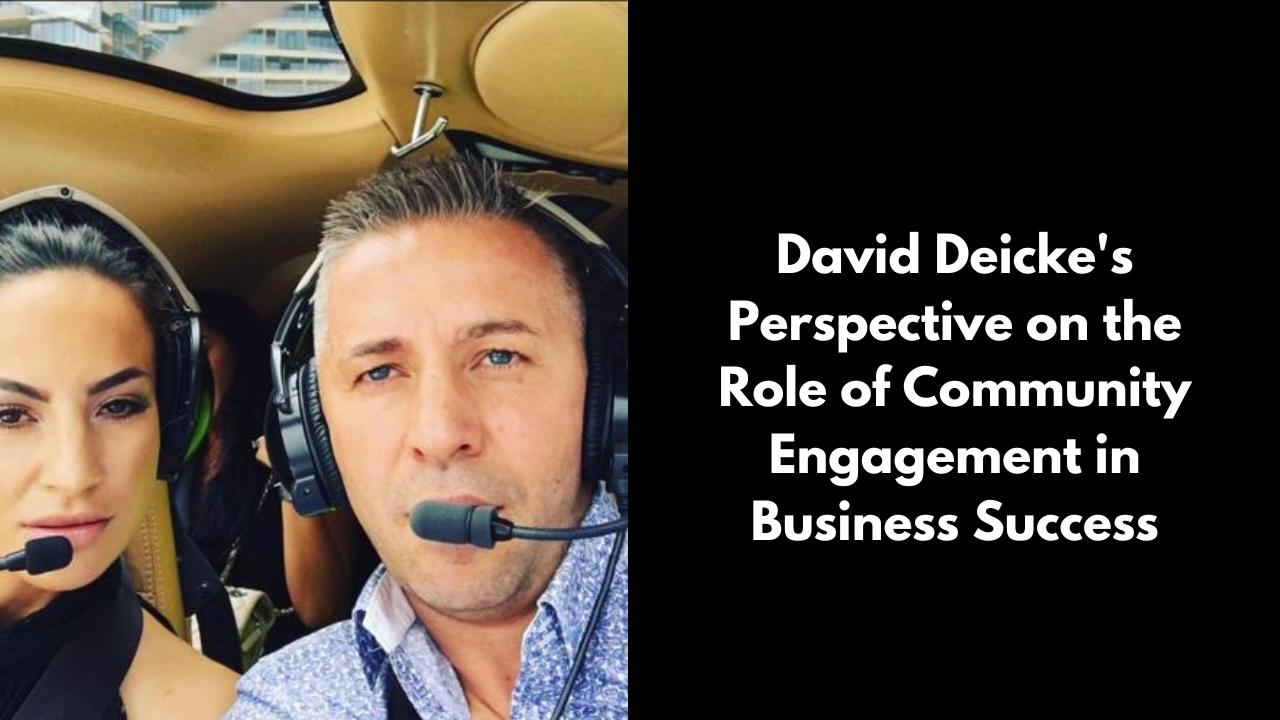David Deicke, a renowned businessman and former boxer, understands that success in business goes beyond profits and growth. It also involves meaningful engagement with the community. In this blog, David shares his insights on the importance of community engagement in building a successful business, highlighting how his involvement with local communities has contributed to the growth and reputation of his ventures, particularly Melbourne Collision Repair Centre (MCRC).
Building Trust and Reputation

The Foundation of Trust: Trust is a cornerstone of any successful business. David believes that engaging with the community is essential for building and maintaining this trust. When businesses actively participate in community activities, sponsor local events, and support local causes, they demonstrate their commitment to the well-being of the community. This fosters a sense of trust and loyalty among customers.
Case Study: MCRC’s Community Involvement: David’s car smash repair centers have become well-regarded not only for their exceptional service but also for their active participation in community initiatives. MCRC regularly sponsors local sports teams, participates in charity events, and supports community projects. This involvement has significantly enhanced the company’s reputation, making it a trusted name in Melbourne.
Creating Strong Relationships
Networking and Connections: Community engagement provides businesses with opportunities to build strong relationships with other local businesses, government officials, and residents. These connections can lead to valuable partnerships, collaborations, and support networks that benefit the business in the long run. David emphasizes that these relationships are crucial for navigating challenges and leveraging opportunities.
Mutual Support: By supporting the community, businesses often find that the community, in turn, supports them. This mutual support creates a symbiotic relationship where both the business and the community thrive. David’s approach to community engagement has resulted in a loyal customer base that advocates for MCRC, further boosting the company’s growth.
Enhancing Employee Satisfaction and Retention

Employee Morale: Employees are more likely to feel proud and motivated to work for a company that actively contributes to the community. David has found that MCRC’s community engagement initiatives have positively impacted employee morale and job satisfaction. When employees see their company making a difference, it fosters a sense of purpose and pride in their work.
Attracting Talent: Community engagement also makes a business more attractive to potential employees. Talented individuals are often drawn to companies that are socially responsible and engaged with the community. David’s emphasis on community involvement has helped MCRC attract top talent who share the company’s values and vision.
Driving Innovation and Growth
Understanding Community Needs: Engaging with the community helps businesses gain valuable insights into the needs and preferences of their customers. David highlights how MCRC’s involvement in community events and interactions with local residents has provided them with feedback and ideas that have driven innovation and improvement in their services.
Staying Relevant: In a rapidly changing business environment, staying relevant is key to long-term success. Community engagement allows businesses to stay connected with their customers and adapt to changing trends and demands. David believes that by staying attuned to the community, businesses can remain agile and responsive to new opportunities.
Making a Positive Impact
Corporate Social Responsibility (CSR): Community engagement is a vital aspect of corporate social responsibility. David stresses that businesses have a responsibility to give back to the communities that support them. This can include initiatives such as environmental sustainability efforts, educational programs, and charitable donations.
Long-Term Benefits: While community engagement requires an investment of time and resources, the long-term benefits far outweigh the costs. Businesses that actively engage with their communities often experience increased customer loyalty, enhanced brand reputation, and sustainable growth. David’s experiences with MCRC are a testament to the lasting positive impact of community involvement.
Practical Steps for Effective Community Engagement

Identify Key Areas: David advises businesses to start by identifying key areas where they can make a meaningful impact. This could include supporting local schools, sponsoring community events, or partnering with local non-profits. By focusing on areas that align with their values and expertise, businesses can maximize their impact.
Consistent Engagement: Consistency is crucial for effective community engagement. David emphasizes the importance of regular and ongoing involvement rather than one-off initiatives. This consistency helps build strong, lasting relationships and demonstrates a genuine commitment to the community.
Employee Involvement: Engaging employees in community initiatives is another key strategy. David encourages businesses to involve their staff in volunteer activities and community projects. This not only amplifies the impact but also enhances team cohesion and employee satisfaction.
Measuring Impact: Finally, measuring the impact of community engagement efforts is essential. David suggests setting clear goals and regularly assessing the outcomes of initiatives. This helps businesses understand the effectiveness of their efforts and make necessary adjustments to maximize their positive impact.
Conclusion: Community Engagement as a Pillar of Success
David Deicke’s reflections on the role of community engagement in business success highlight its critical importance. His experiences with MCRC demonstrate how meaningful engagement with the community can build trust, create strong relationships, enhance employee satisfaction, drive innovation, and make a positive impact.
For David, community engagement is not just a business strategy; it’s a core value that guides his approach to entrepreneurship. By prioritizing the well-being of the community, businesses can achieve sustainable success and leave a lasting legacy. David’s journey serves as an inspiration for other entrepreneurs to embrace community engagement as a pillar of their business success.

